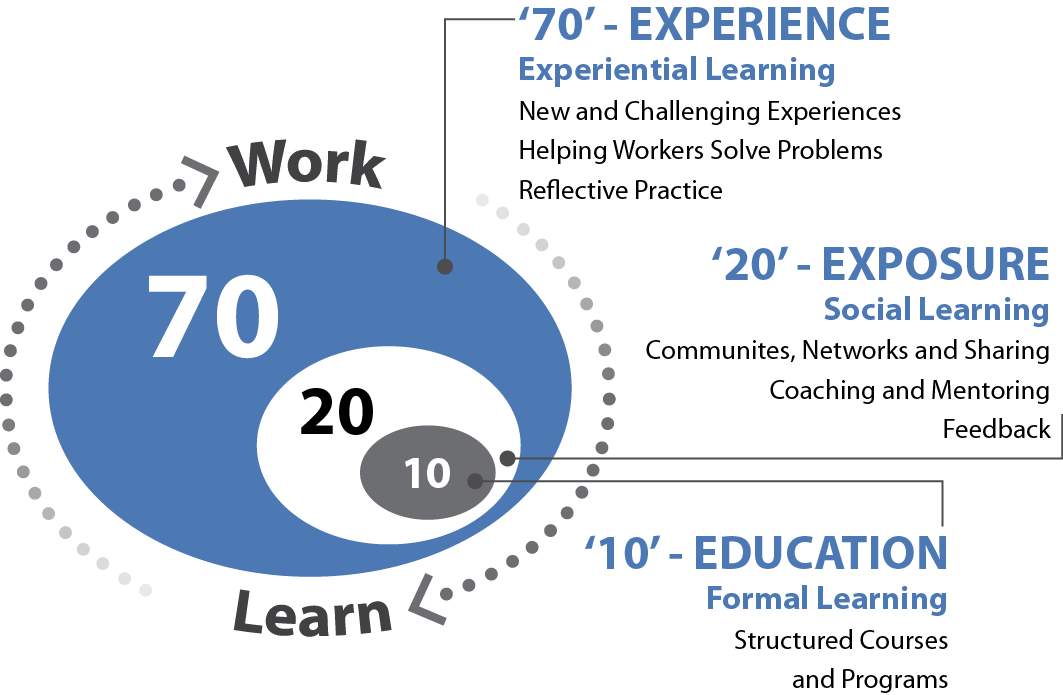How To Turn A Technical Expert Into A Leader
This is a story about a man named Andrew.
Andrew was an ambitious young accountant. He was smart and worked hard. And because he was smart, he caught the attention of people in charge of the business. As these things often go, he was promoted – the usual prize for being smart, working hard and putting the needs of the business first.
And then it all started to go very wrong.
Andrew was a technical expert. He loved his laptop and his spreadsheets, and the challenge of being able to influence the direction of the business with his analysis, proposals and recommendations.
What he wasn’t, was a manager. And he certainly wasn’t a leader. And all of a sudden, his job had morphed from what he really loved doing and what he was really good at to something very different.
His performance started to go downhill. His colleagues complained. His staff complained. Andrew ruminated…
I just don’t understand why I have to do this leadership thing. Why can’t I be left alone in my office with my laptop to do what I have always done, to do what I have always been good at? Why do I need to have the people bit too?
It’s a story that I am sure you have seen unfold many times in your own organizations – technical experts who are good at what they do who end up in a managerial or leadership role and fail woefully.
So, how can leaders in organizations make the transition from technical expert to leadership in a way that works for all involved?
The following three elements, when brought together create the environment and the system that allow leadership to flourish and technical experts to come to leadership in a manner which supports and nurtures.
1) The Individual Themself
2) The Organizational Support Available
3) The Organizational Culture
The Individual Themself
Here are some questions to ask of the individual moving into a new leadership role:
– Do you actually want the job? (Some high performing technical experts really don’t want a leadership role and are more than happy to be left at the technical expert level).
– Do you understand the why/what of the job and how that might be quite different from the technical roles you’ve performed in the past?
– Are you clear on the behaviors and competencies required and how these will be very different from previous roles?
– Do you have the right mindset around learning, failure, and the new behaviors required?
– Are you ready to take responsibility for your career in terms of seeking out additional coaching/mentoring/assistance as needed?
Given all the above, what support do they need?
Some Practical Tips:
1) Give the new leader a formal induction into their role. This means looking at the accountabilities and responsibilities, but also the behaviors and competencies required. What is different from the previous role and what support might be necessary to get the new leader there?
2) Read the work of Dr. Lois Frankel on the competencies required of new managers vs technical expertise, and consider how this applies. The competencies are very different, and that is often where difficulties arise.
3) Read the work of Dr. Carol Dweck on growth mindset vs fixed mindset or watch her TED talk. It turns out that some people naturally see challenges as growth opportunities, whereas others shut down.
The Organizational Support Available
The next element to making sure the transition is a successful one is to look at what support is available more generally throughout the organization.
Some questions to ask:
– What does leadership mean for this organization?
– How does leadership differ from management in this organization?
– What support is available from a development perspective? The 70/20/10 rule is useful here (see image below).

– Is there clear accountability / responsibility defined in a job description or role charter?
– What employee feedback mechanisms are built in to the day-to-day ways of doing business?
The Organizational Culture
It is difficult for even the most competent individuals to thrive if the organization’s culture is rubbish. Even the best, most enthusiastic new leader is going to struggle in this sort of environment:
– Where people look to pass the buck rather than taking accountability.
– Where there are triangular discussions rather than direct and honest feedback.
– Where people operate in a mushroom like environment (in the dark, not really knowing what is going on).
– Where power is bandied around for evil rather than influence being used for good.
It is not impossible to thrive in such an environment that is less than optimal in terms of culture. BUT, it is so much harder to have to swim against the grain of the organization, its culture and all that it encourages and supports.
Culture is typically defined as the ways of working around here. It is the vibe that you get when you walk into an office. It’s the million little things that make up the organization.
For technical experts to transition to leaders, ideally the organizational culture should support the concept of leadership, and create an environment where appreciating leadership can emerge naturally regardless of role. Here are some questions to ponder around this:
1) What does our culture look like?
2) Do we have a culture that supports employees and believes in great leadership, understands the difference between leadership and authority, and supports new leaders in learning to be the best that they can be.
3) Do we have a culture that supports failures and genuinely understands that failure is an important part of learning and growth?
4) Do we have a culture of regular, clear, and transparent communication at all levels ?
5) Is there clarity about who does what and how this links to the broader organizational plan?
Nothing kills the passion for those who move from high performing specialist to leader, more than discovering that they are a dumping ground for managers above and reports below. Passion comes from “freedom within the framework”; when they’re told broadly what needs to happen and why, but the how is largely self-determined.
Making It Happen
Of course, it’s not always that easy. Many organizations have a long way to go in terms of culture and leadership. So have a conversation around leadership and culture. Even in an imperfect environment, something is better than nothing. An acknowledgment of the culture and environment in which the new leader will finds himself can be reassuring.
But as the manager of the new leader, you can support them even in an imperfect environment. Start the conversation around what is different compared to their old role, and what they will need to be supported in the transition. More than anything, frame the transition as a journey, one that is rarely linear but manageable with plenty of help along the way.
 Tammy Tansley is the owner of Tammy Tansley Consulting, a leadership, culture and coaching consulting business, and co-owner of Help Me HR, which provides HR support to those in trouble or transition at work. She is the author of Do What You Say You’ll Do, a book for new leaders and those reinventing their leadership styles.
Tammy Tansley is the owner of Tammy Tansley Consulting, a leadership, culture and coaching consulting business, and co-owner of Help Me HR, which provides HR support to those in trouble or transition at work. She is the author of Do What You Say You’ll Do, a book for new leaders and those reinventing their leadership styles.



